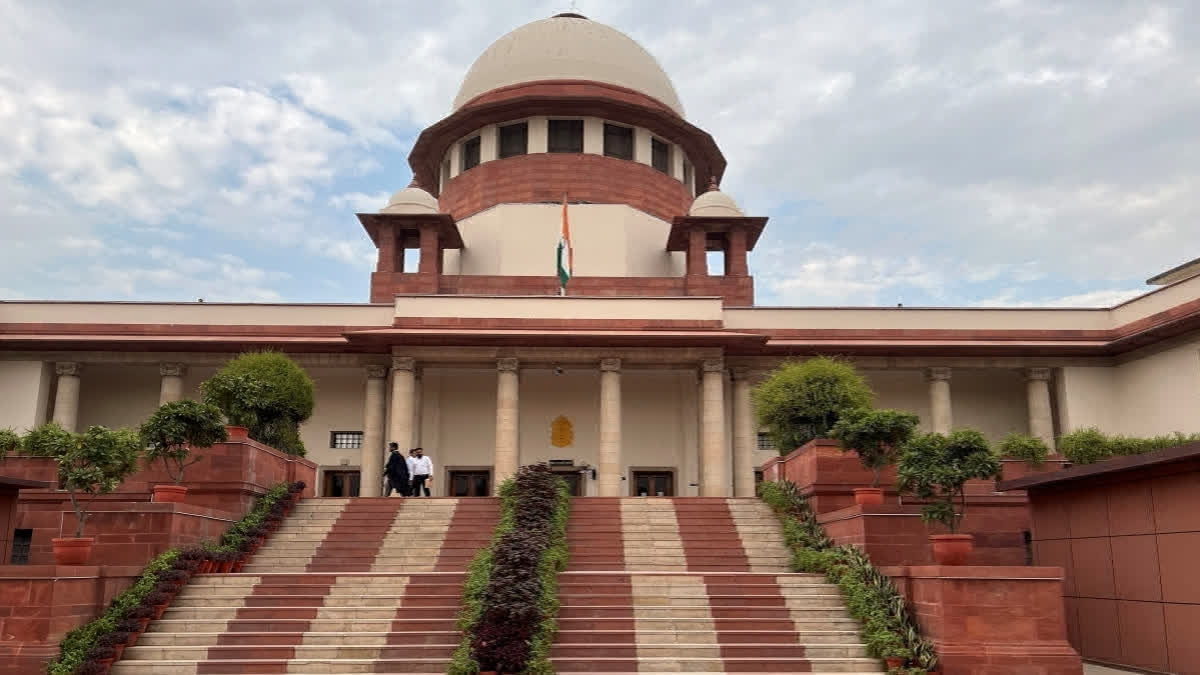New Delhi: The Supreme Court has said that the nomination process does not override the succession laws and there is no third mode of succession that the scheme of the Companies Act, 1956 and Depositories Act, 1996, aims or intends to provide.
A bench comprising Justices Hrishikesh Roy and Pankaj Mithal said: "Upon a careful perusal of the provisions within the Companies Act, it is clear that it does not deal with the law of succession. Therefore, a departure from this settled position of law is not at all warranted".
The bench said that there is a complex layer of commercial considerations, which have to be taken into account while dealing with the issue of nomination pertaining to companies or until legal heirs are able to sufficiently establish their right of succession to the company. "Therefore, offering a discharge to the entity once the nominee is in the picture is quite distinct from granting ownership of securities to nominees instead of the legal heirs. Nomination process therefore does not override the succession laws," ovserved the bench.
It said that there is no third mode of succession that the "scheme of the Companies Act, 1956 (pari materia provisions in Companies Act, 2013) and Depositories Act, 1996 aims or intends to provide".
The bench also said the vesting of securities in favour of the nominee contemplated under Section 109A of the Companies Act & Bye-Law 9.11.1 of Depositories Act, is for a limited purpose. "To ensure that there exists no confusion pertaining to legal formalities that are to be undertaken upon the death of the holder and by extension, to protect the subject matter of nomination from any protracted litigation until the legal representatives of the deceased holder are able to take appropriate steps," said the bench, in a judgment delivered on December 14.
The bench said that the object of introduction of nomination facility vide the Companies (Amendment) Act, was only to provide an impetus to the investment climate and ease the cumbersome process of obtaining various letters of succession, from different authorities upon the shareholder’s death.
The apex court upheld the Bombay High Court order, which held that the nominee of a holder of a share or securities is not entitled to the beneficial ownership of the shares or securities, which are the subject matter of nomination to the exclusion of all other persons who are entitled to inherit the estates of the holders as per the law of succession.
A testator, Jayant Shivram Salgaonkar, executed a will for the devolution of his estates upon the successors. The appellants and nine respondents, are legal heir and representatives of the testator. In the will, the testator had certain mutual fund investments where appellants and respondent No. 9 were made nominees.
Salgaonkar passed away on August 20, 2013. In 2014, the respondent no. 1 filed a suit, seeking declaration that the Salgaonkar's properties be administered under the court's supervision and seeking absolute power to administer the same. He also sought permanent injunction restraining all other respondents and appellants from disposing, transferring, alienating, assigning and/or creating any third-party interests in respect of the properties. The appellants pleaded that they were the sole nominee(s) to the mutual funds. The essence of their claim was that the appellants being nominees were absolutely vested with the securities on the testator's death.
The appellant no.2 was additionally nominated and entitled to the FDs of the testator in the IDBI Bank. It was also the appellants’ contention that nominations made under/in Jayant Shivram Salgaonkar’s MFs/shares were made as per Section 109A & 109B of Companies Act and bye-law 9.11.7 of the Depositories Act.
They said Section 109A and 109B of the Companies Act, must be read as a code in themselves, wherein the meaning of words 'vest' and 'nominee' are to be seen from the statute alone bearing in mind the non-obstante clause contained therein. Therefore, the provisions should be interpreted without reference to any outside consideration.
In March 2015, the single judge of the High Court, while relying on Kokate judgment, rejected the claim of appellants. In appeal, the Division Bench of the Bombay High Court in December 2016, observed that the provisions of Act 1956 do not deal with succession at all and the Kokate judgment was per in curium.
The division bench declared that the nominee of a holder of a share or securities is not entitled to the beneficial ownership of the shares or securities, which are the subject matter of nomination to the exclusion of all other persons who are entitled to inherit the estates of the holders as per the law of succession. The appellants moved the apex court against the December 2016 order.
Read more:



